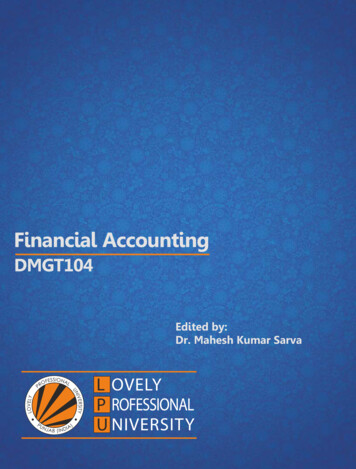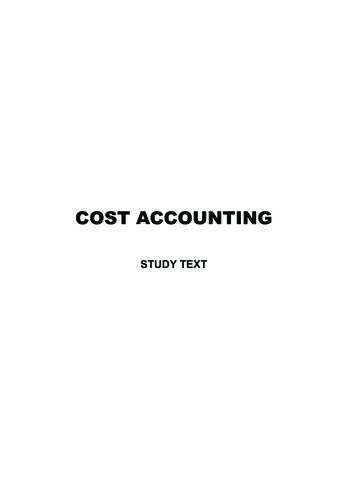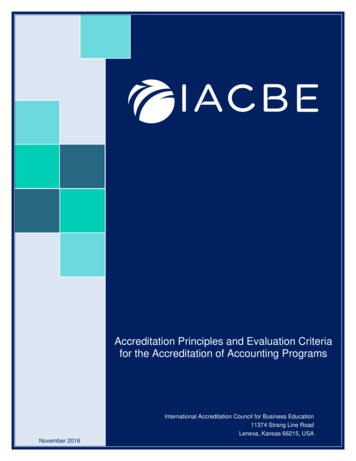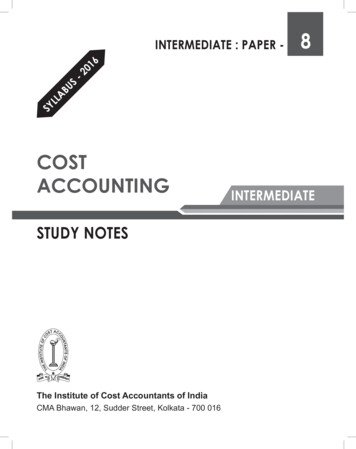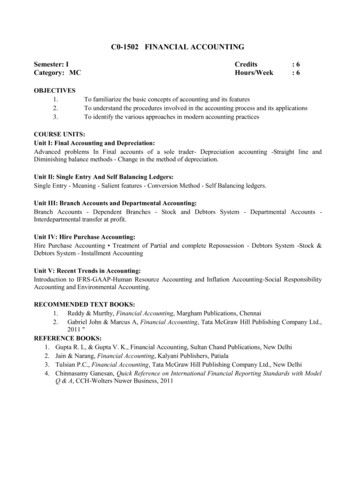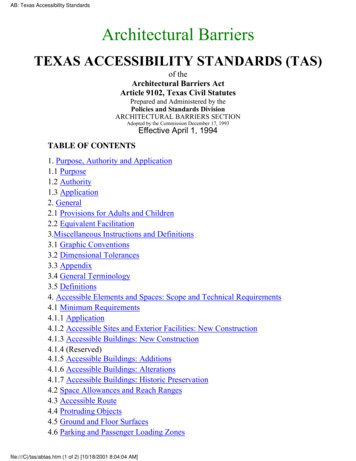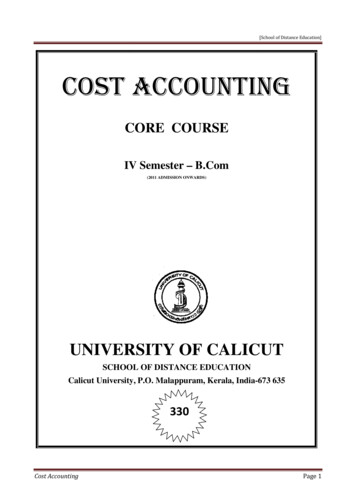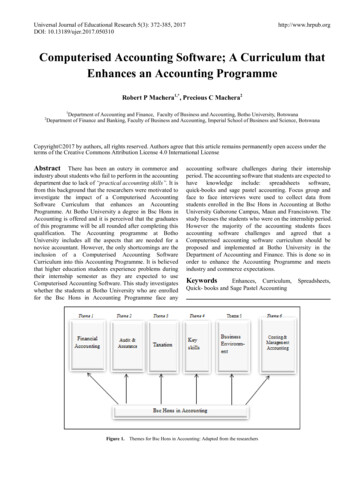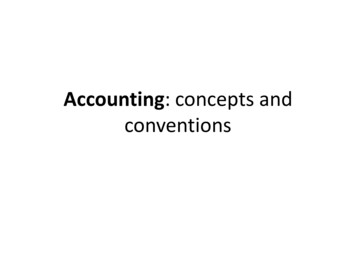
Transcription
Accounting: concepts andconventions
Accounting Concepts, Conventions,Bases & Policies Concepts vs ConventionsConcepts are the basic ideas, the theories onhow and why certain categories oftransactions should be treated in a particularmanner.Once the theories have been established andtested and proved to be acceptable, the taskof the Conventions is to set out the limit oftheir applications.
Accounting Concepts 1. Business Entity Concept – business is aseparate entity. 2. Money Measurement Concept – moneycommon denominator of measurement. 3. Going Concern Concept – perpetualsuccession. 4. Accounting Period Concept – pre-determinedperiodicity generally an year. 5. Cost Concept – an asset’s cost is the basis of allsubsequent accounting.
Accounting Concepts 6. Realisation Concept – revenue should berecognized “when it is earned”. 7. Matching Concept – associating the causeand effect relationship of revenues andexpenses. 8. Accrual Concept – similar to matching,period should be decided on the basis ofaccrual. 9. Dual Aspect Concept – 2 aspects must beexamined – the giving and the receiving.
Accounting Conventions 1. Consistency – method once adopted should be followed. 2. Disclosure – all relevant facts concerning financial positionmust be communicated to users. 3. Materiality – concerned with significant information. 4. Objectivity – unbiased and subject to verification byexternal expert. 5. Stable Monetary Unit – the Indian Rupee. 6. Conservatism or Prudence – when in doubt, choose thesolution that is least likely to overstate net assets and netincome for the current period.
Some Important Terminology OfAccounting Assets : The economic resources whichare owned by a business and areexpected to benefit future operations.Assets may have definite physical form,such as buildings, machinery ormerchandise. Equity : this is the claim against theassets owned by the business. Equitiesor claim against the assets indicate thesources from which the assets of abusiness were obtained.
Continued .Liabilities : liabilities are the debts owed by abusiness to out side parties ( called creditors ). Thisincludes amount owed to suppliers for goods orservices purchased amount borrowed from banksor other lenders, salaries and taxes due but not paid.Net worth : the term net worth, proprietorship,owner’s investment, or capital– all have the samemeaning in accounting : namely, the owner’s equityor interest in the assets of the business. It is thedifference between what the business owns andwhat it owes.
Continued . Revenue : It may be defined as the inflow of cash assetsresulting from the sale of goods and services in theordinary course of business. For eg., interest received oninvestments, commission received, rent received etc.Revenue cause an increase in capital. Expenses : it may be defined as the cost of the goodsand services used up in the process of obtaining revenue.Example include - the cost of goods sold, wages andsalaries of employees, charges for news paper, advertisingetc.
Accounting Concepts 1. Business Entity Concept – business is a separate entity. 2. Money Measurement Concept – money common denominator of measurement. 3. Going Concern Concept – perpetual succession. 4. Accounting Period Co
